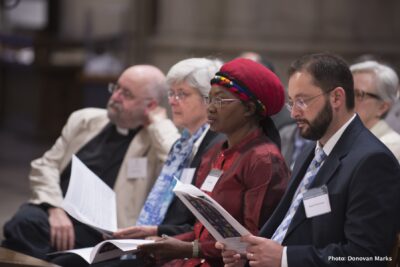We are happy to announce two of our sessions will be held at this year virtual AAR:
LGBTQ+ Experience as an Ecclesial Issue
Ecclesiological Investigations Unit and Wesleyan and Methodist Studies Unit (A1-306)
Tuesday, December 1, 4:00 – 5:30 pm EST
The reality of LGBTQ+ experience is a complex phenomenon among churches on local, regional, national, and global levels, within Methodist and Wesleyan communities as well as other denominations and church families. That complexity has impacted the pastoral reality of churches and their self-understanding on all these levels. These papers consider how LGBTQ+ people and their experiences impact churches’ experiences and ecclesiologies, particularly in Wesleyan and holiness traditions but also in other churches and traditions. The first explores historical cases of responses to queer Christians within denominations and interdenominational organizations in the 1970s and 1980s. The second critically exams data from the 2019 Special General Conference of the United Methodist Church and argues for a queer approach that connects LGBTQ+ activism to anti-racist and anti-colonialist activism. The concluding paper explores further connections beyond specifically LGBTQ+ issues in suggesting that the crisis over LGBTQ acceptance in the United Methodist Church is a symptom of a broader dis-ease among many Methodists due to perceptions of cultural change.
Church and the Common Good
Ecclesiological Investigations Unit (A9-304)
Wednesday, December 9, 4:00 – 5:30 pm EST
To various degrees, several recent books and articles attempt to specify the contribution churches can and sometimes do make to articulating a vision of the common good. While this is not a new area in the study of the church, it may be an especially important area of investigation at a time when many of the other institutions and structures that have historically participated in conversations about the shape of common public life have been undermined or have disappeared. The papers in this section explore the intersection of political or public theology and ecclesiology. The first explores neighborhood churches as unique centers of social capital and civic engagement in consumerist societies. The second argues that IAF organizing in its practices and conception of the common good provides a model for a more adequate political ecclesiology. The third reports upon two different empirical studies of how religious communities in the UK and Canada engage with others in the public sphere.

